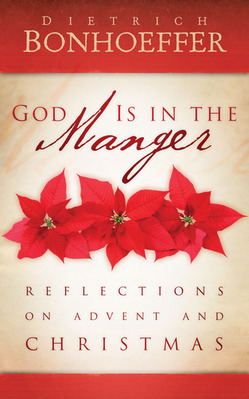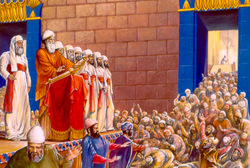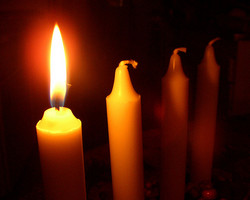I hope you’re having a quietly joyous Advent. Last week on Flunking Sainthood, our Bonhoeffer theme was waiting, a condition that Bonhoeffer knew all too well — waiting for the war to end, waiting to be released from prison, waiting for his normal life to resume. (It never did; he was executed by the Nazis in 1945, just weeks before the end of the war.)
This week’s theme in Bonhoeffer’s God is in the Manger: Reflections on Advent and Christmas is “mystery.” One of the mysteries he addresses is that of incarnation: why would God, who could have chosen to appear as a powerful king or messiah, choose instead to come to us as a helpless baby? In the manger, Bonhoeffer finds heavenly glory precisely because there is no earthly glory to be had. He looks to the Magnificat of Mary and sees the powerful being brought down from their thrones while the lowly and poor are exalted. “The rich he sends away empty,” declares this section of the Gospel of Luke.
Such passages make us uncomfortable. In 21st-century America, we enjoy peace and untold riches. Our nation is powerful. We have so very much to lose in bowing to the manger. Why would we? Bonhoeffer writes:
For the great and powerful of this world, there are only two places in which their courage fails them, of which they are afraid deep down in their souls, from which they shy away. These are the manger and the cross of Jesus Christ. No powerful person dares to approach the manger, and this even includes King Herod. For this is where thrones shake, the mighty fall, the prominent perish, because God is with the lowly. Here the rich come to nothing, because God is with the poor and hungry, but the rich and satisfied he sends away empty. Before Mary, the maid, before the manger of Christ, before God in lowliness, the powerful come to naught; they have no right, no hope; they are judged. . . .
It’s hard to renounce wealth. It’s nearly impossible to renounce power. Yet Bonhoeffer says this is what the manger requires of us: to become like the God who chose to come in a diaper, weak and dependent. Are we prepared to embrace that bracing mystery?


